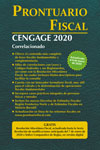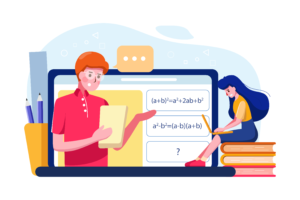Este artículo fue publicado en: noviembre 30, 2015
Teachers cannot avoid bringing in a substitute teacher. It’s the rare teacher who can get through a career without needing someone to cover his or her classroom due to illness, emergencies, IEP meetings, or professional development. Preparing for a substitute can be difficult, and many teachers (myself included) would rather come to school ill than write sub plans. But sometimes it’s unavoidable. While most districts are doing a better job at preparing their substitutes for the classroom, serving students with special needs remains a challenge.
Of course, you should leave detailed sub plans that include the schedule for the day and all materials needed for instruction, but writing sub plans when you’re feeling miserable is never fun. Considering the variables before you have to write one of these will make it easier when you’ve succumbed to the latest plague to hit your building. During my years as a special educator, I worked with many teachers who were unsure about how to address their students with special needs in these plans, and with just as many substitutes who had no idea how to meet those students’ needs.
Here are some sub plan suggestions if you are a classroom teacher with special education students.
Academic and Behavioral Help
Índice
When you’re leaving plans, be as explicit as possible for the sub about who will need additional academic or behavioral help. Although you can’t list confidential information, you can certainly note who needs a closer eye. You can also note which students are particularly helpful so that your sub can ask them for clarification. Be sure to identify who leaves for intervention groups or therapies and who will be picking them up. Subs can be anxious about letting children out of the classroom, and they need to know who goes where. (This is especially important when Max insists that, yes, he isabsolutely supposed to go to speech therapy.)
If you have a student with a behavior plan, don’t forget the instructions about how it works. Students who need behavior plans can be very unhappy and increase their negative behavior if events deviate from their expectations. I’ve seen many situations go south quickly because the sub didn’t know how the behavior book worked.
If you have a student who has been so disruptive that your class has been evacuated, be sure to leave the evacuation plan easily accessible. And similarly, if you have a student who may leave (or actually bolt from) the classroom, be sure to note that possibility and outline the procedure to follow.
Te puede interesar
 Prontuario Fiscal 2020
Prontuario Fiscal 2020Ir al Prontuario Fiscal 2021 -> En 2020 entrarán en vigor nuevas y numerosas disposiciones fiscales en materias tan importantes...
Finally, if you’re going to IEP meetings and have arranged for a short-time sub, be prepared for the meetings to start behind schedule or run longer than expected, and plan accordingly. It’s important to remind the sub not to leave when the schedule tells him or her to report to the next classroom, but to wait for your return. This will prevent your class from being left unattended. And, yes, this happened in my building once!
Collateral Duties and Classroom Help
If you are a special educator and need a sub, it’s a completely different game. I found that many subs were baffled by my inconsistent and complex schedule, so be sure to leave very detailed plans. While you ‘e used to changing locations every 30 minutes, this may be unfamiliar for the sub. Consider leaving a map of the school, highlighting and labeling the rooms where your students can be found, and including the teachers’ names.
Don’t forget to note collateral duties (bus, lunch, recess, etc.), when and where the sub has to report, and who can answer his or her questions. Likewise, if you have duties that are only performed during an emergency or drill (fire, weather, intruder, etc.), don’t forget to leave those instructions as well.
If you are a special education teacher in self-contained setting, share as much student information as you can with your sub, especially if this is the first time that he or she has subbed for you or in a self-contained classroom. If you have a regular paraeducator, that person can be an enormous help to your sub, but be clear about your expectations. Decide if you want him or her to take the lead teacher role or remain in the paraeducator role — and make sure that you’ve discussed this prior to your absence.
Routines and Exceptions
Leave all special behavior plans, making sure they are clearly explained. Be particularly careful to note how the sub should avoid exacerbating certain behaviors. For example, if a student is unable to be touched or has other sensory issues, the sub should know this.
Note any significant student medical concerns like allergies, seizures, or high risk of falling, and have emergency medical plans accessible. If there are evacuation plans for students with mobility or sensory issues, be sure that the sub’s responsibilities and expectations are clear.
Te puede interesar
 Cálculo de Una Variable: Trascendentes Tempranas
Cálculo de Una Variable: Trascendentes TempranasEl estudio del cálculo ayuda a los estudiantes a comprender la disciplina de manera práctica. El modo más importante de...
Don’t forget to include details about daily routines, such as arrival in the morning, lunch, bathroom breaks, snacks, transition, and dismissal. These details may be so familiar that you do them without thinking, but they are unfamiliar to the sub.
As teachers, we’re protective of our students, especially those who need so much more of our help and protection. It can be hard to leave our kids in the care of somebody we may not know, but being prepared can help limit the potential problems and increase instructional time.
What suggestions do you have about effective sub plans that consider the needs of children who receive special education services? Share them in the comments section below.
Te puede interesar
 Principios de economía
Principios de economía¿Por qué debería usted estudiar economía? La razón es sencilla: le ayudará a comprender el mundo en que vive. Existen...
See original text: http://goo.gl/66S7IX






